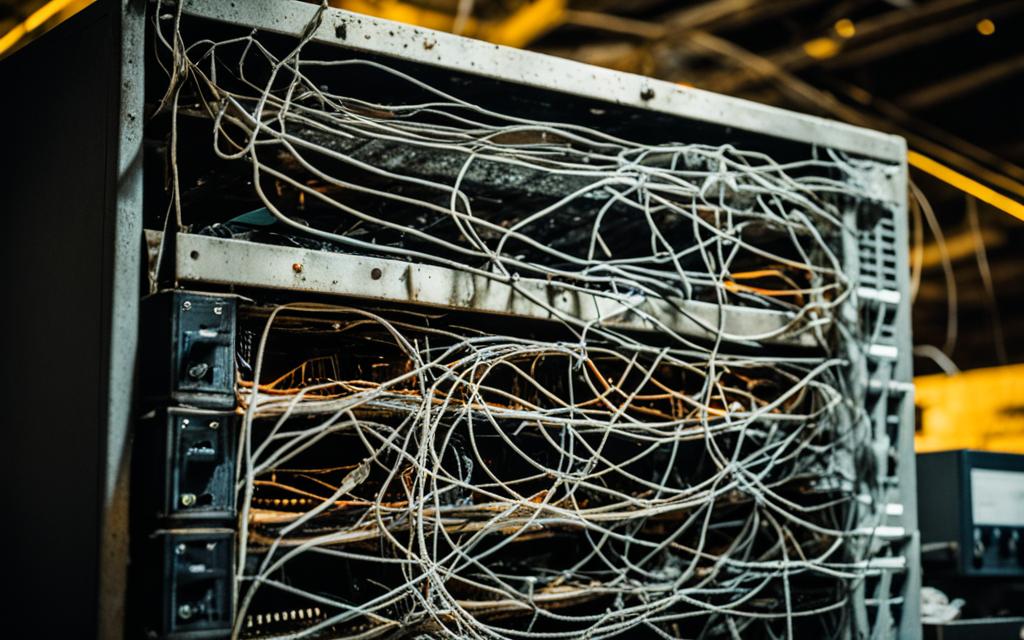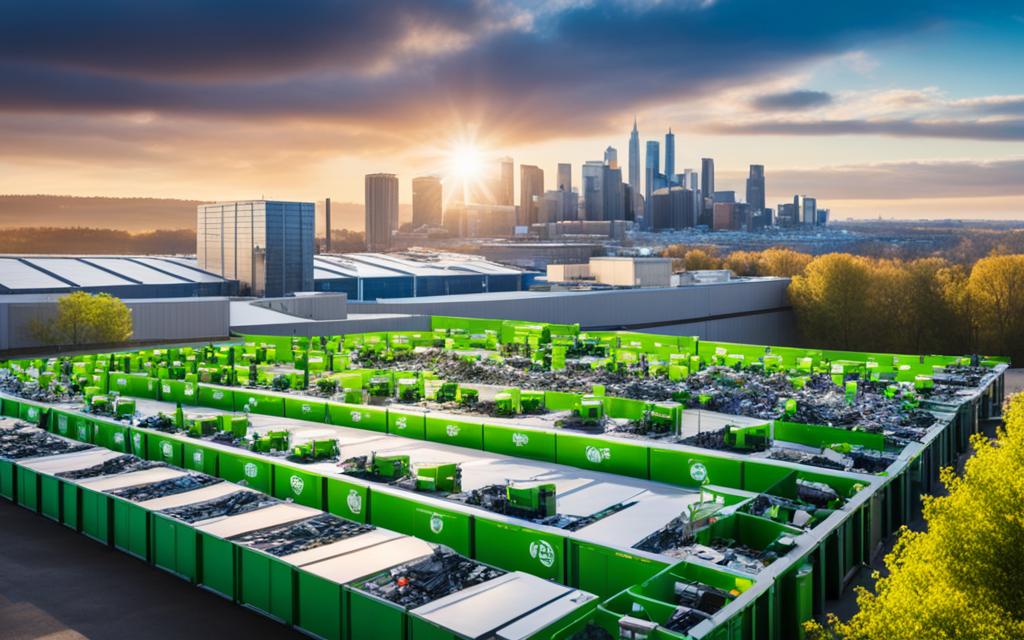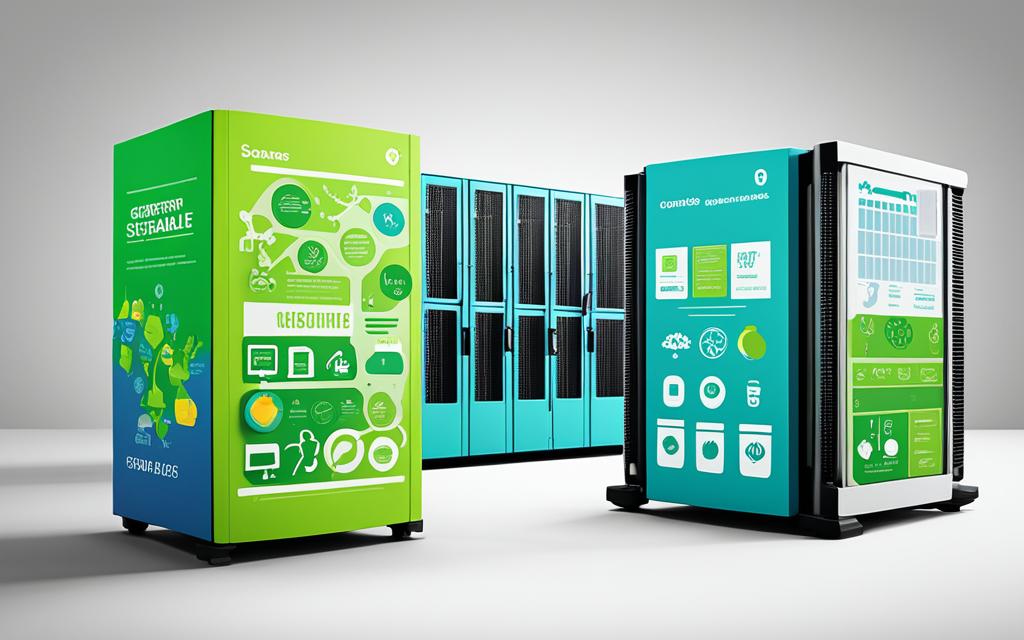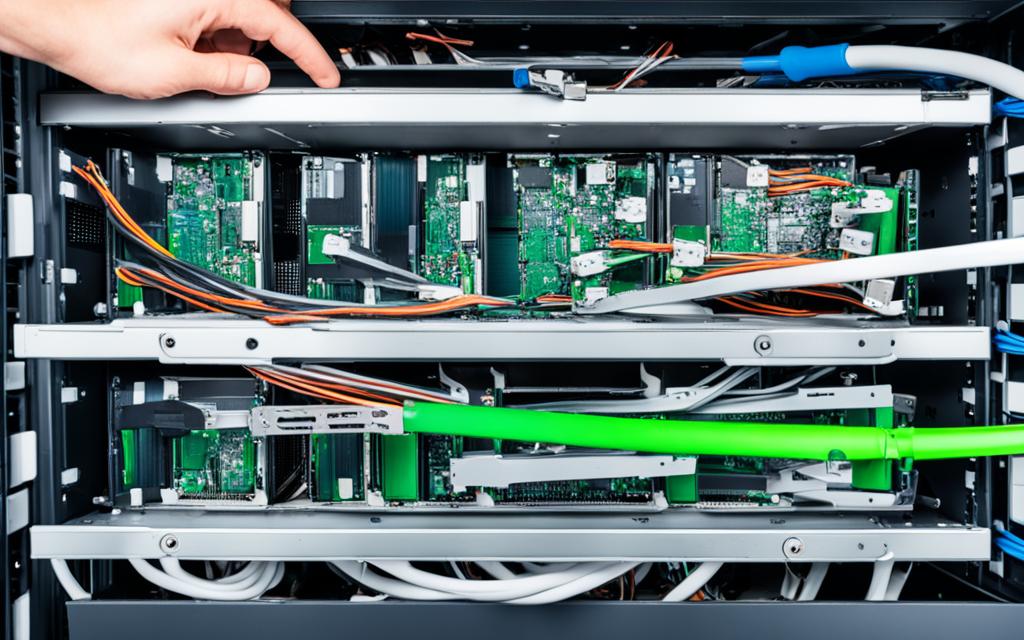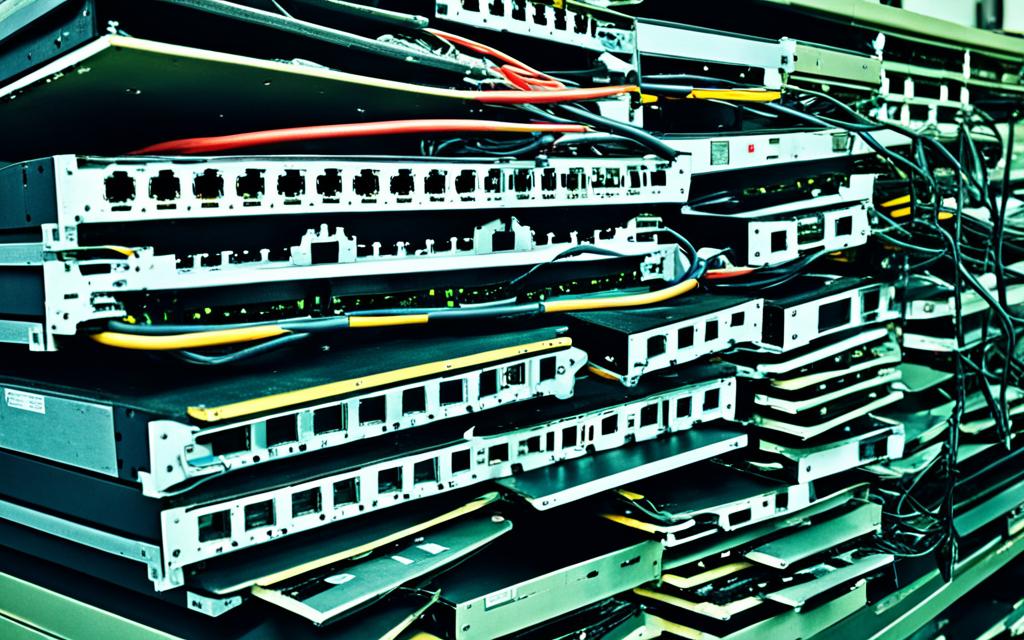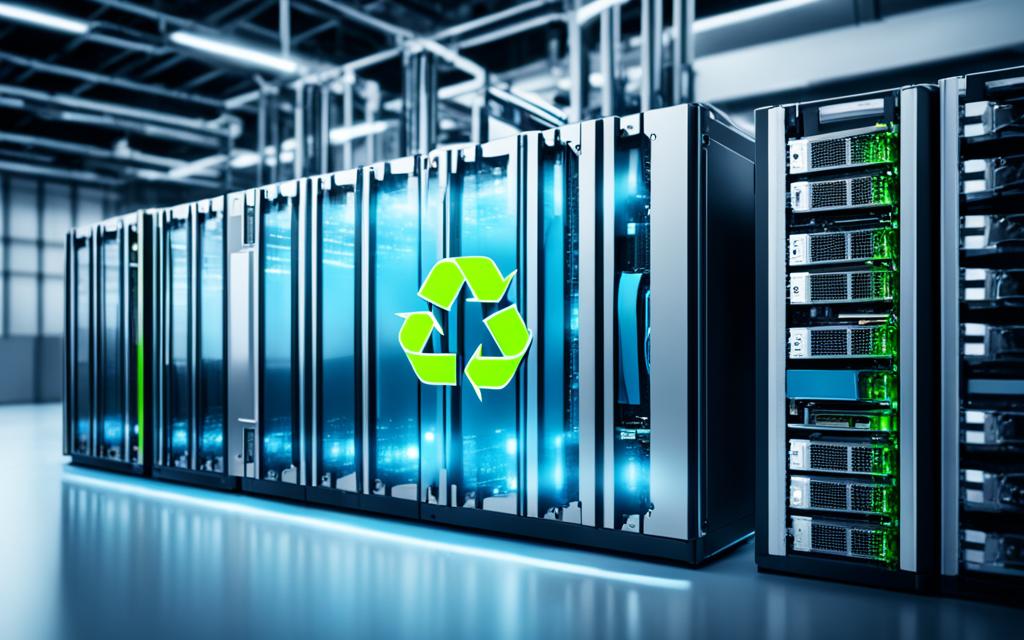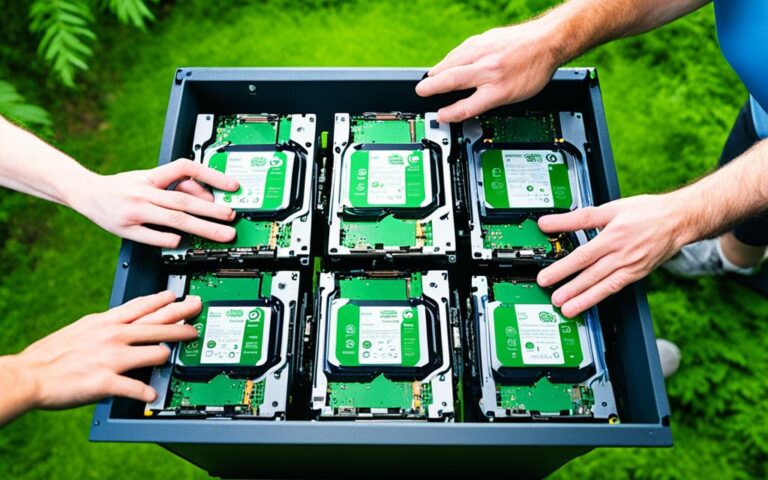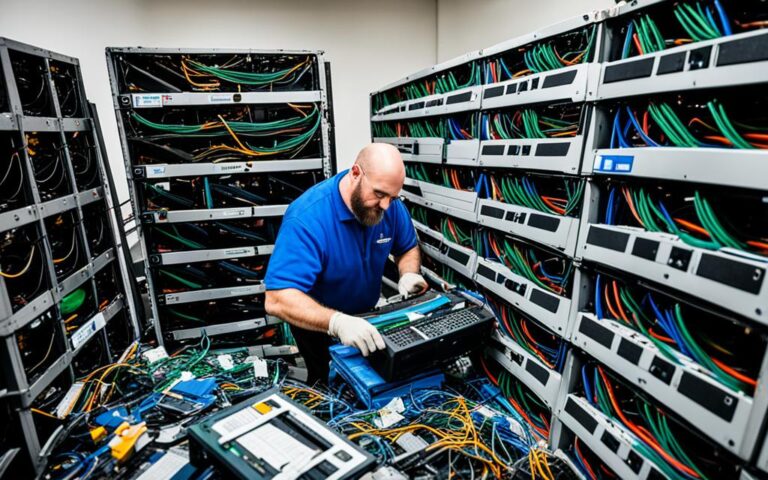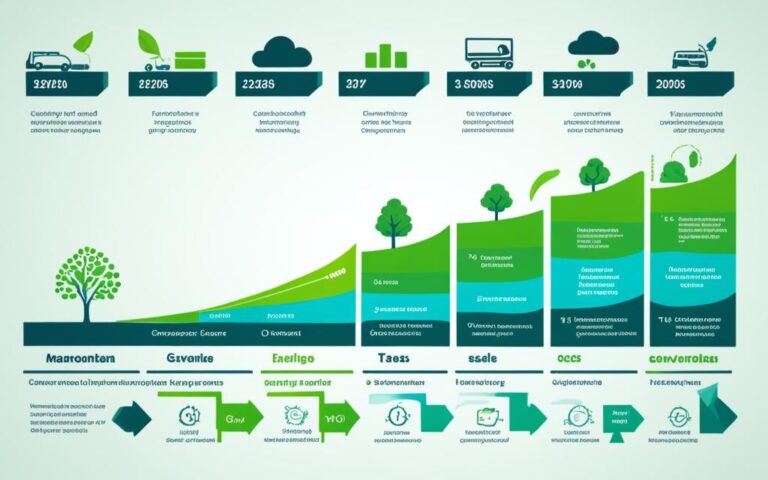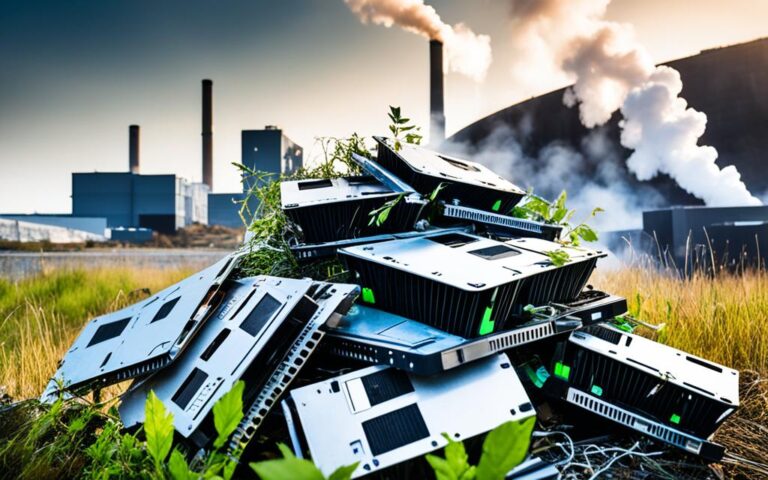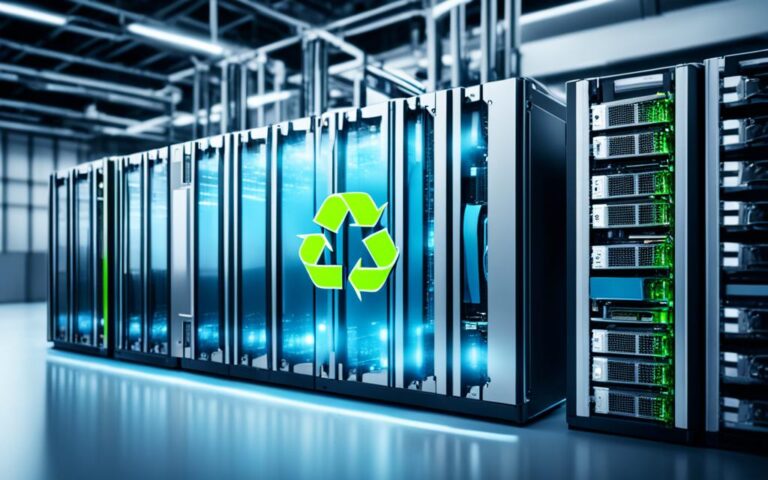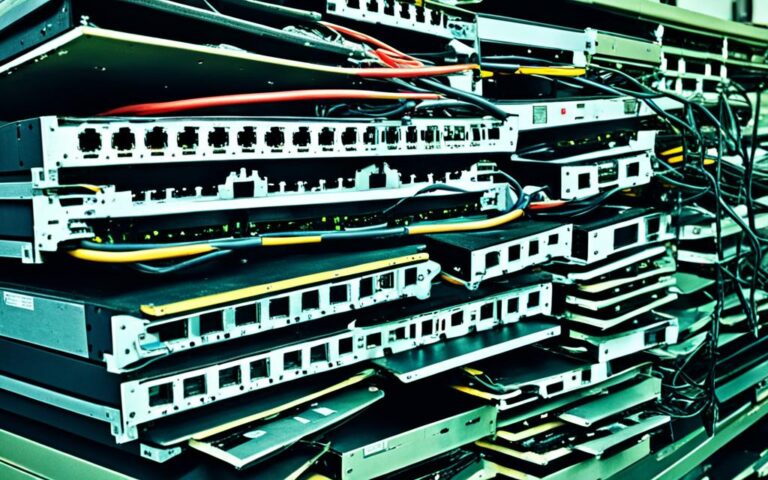Maximizing the Value of Old Servers Through Recycling
In today’s rapidly evolving technological landscape, businesses frequently upgrade their servers to keep up with the latest advancements. As a result, they often find themselves left with a surplus of outdated servers. Instead of letting these valuable assets go to waste, it’s essential to explore smart recycling strategies to maximise their value.
Server recycling is not only an environmentally responsible choice but also offers an opportunity to recover value from old servers. While simply recycling them is better than sending them to landfills, there are smarter ways to extract the maximum value from these retired assets.
By choosing to recycle servers, businesses can not only reduce their environmental footprint but also cut costs by repurposing and reselling the components. Reusing servers helps reduce the need for manufacturing new ones, saving resources and energy in the process.
Furthermore, donating old servers can provide businesses with a significant tax write-off, making server recycling a financially beneficial option. Additionally, reselling through the secondary market can also be a viable option for businesses looking to recover some of their investment in the old servers.
However, if an organization decides to recycle its servers, it’s crucial to prioritize data security throughout the process. Working with a vendor that ensures secure data erasure and transparent recycling practices is essential to protect sensitive information.
When it comes to maximising the value of old servers through recycling, Data Network provides comprehensive IT asset management solutions. With secure data erasure and a transparent server recycling process, Data Network ensures that businesses can extract the most value from their old servers while adhering to environmental standards.
In the following sections of this article, we will explore the environmental benefits of server recycling, the advantages it offers for businesses, the server recycling process, the risks of improper server disposal, and conclude with a strong call to action to choose responsible server recycling for a sustainable future.
The Environmental Benefits of Server Recycling
Server recycling plays a crucial role in reducing e-waste and protecting the environment. When servers are improperly disposed of, they can release toxic substances into the soil and water, harming ecosystems and human health. By recycling servers, valuable resources like copper and rare earth metals can be recovered, reducing the need for raw material extraction. This contributes to a more sustainable and energy-efficient production cycle.
The Impact of Improper Server Disposal
Improper server disposal can have severe environmental consequences. E-waste from servers, including hazardous materials like lead and mercury, ends up in landfills, polluting the soil and water. This contamination poses a threat to wildlife, plant life, and ultimately our own well-being. Additionally, the manufacturing of new servers requires significant amounts of energy and resources, contributing to greenhouse gas emissions and depleting valuable natural reserves.
The Role of Server Recycling in E-Waste Reduction
Server recycling offers a sustainable solution to tackle the growing problem of e-waste. By recycling old servers, we can divert them from landfills and ensure their components are repurposed or properly disposed of. This not only reduces the environmental impact of e-waste but also conserves valuable resources. Recovering materials from recycled servers, such as copper, gold, and rare earth metals, reduces the need for raw material extraction, preserving natural habitats and mitigating ecological damage.
| Server Recycling | Landfill Disposal | |
|---|---|---|
| Environmental Impact | Reduces e-waste and minimizes pollution | Contributes to soil and water contamination |
| Resource Conservation | Recovers valuable materials for reuse | Wastes valuable resources |
| Economic Benefits | Potential for revenue generation through component recovery | No economic benefit, additional cost for waste management |
By embracing server recycling practices, we can make a significant impact in reducing e-waste and promoting resource conservation. Green-minded businesses and individuals can lead the way in adopting responsible IT asset management strategies that prioritize server recycling. Not only does this benefit the environment, but it also sets an example for others to follow, creating a more sustainable future for all.
The Benefits of Server Recycling for Businesses
Server recycling offers several benefits for businesses. By choosing to recycle their servers, companies can adopt an eco-conscious approach and demonstrate their commitment to sustainability.
One of the key advantages of server recycling is the opportunity for businesses to optimize their bottom line while adhering to ethical standards. By responsibly managing their IT assets, companies can reduce costs associated with storing and maintaining old servers. This cost optimization allows businesses to allocate resources more efficiently and invest in other areas of growth.
Furthermore, recycling newer servers can provide cash back through refurbishment programs. When businesses recycle their servers, these devices can be refurbished and resold to other users. This not only benefits the environment by extending the lifespan of the servers but also creates economic value for both the business and the next user of the refurbished equipment.
Key Benefits of Server Recycling for Businesses:
- Reduced storage and maintenance costs
- Demonstration of environmental responsibility
- Revenue generation through refurbishment programs
- Extended lifespan and value of equipment
By choosing server recycling, businesses can optimize their bottom line, minimize environmental impact, and contribute to a more sustainable future.
Partnering with a reputable IT asset management provider, such as Data Network, ensures businesses can confidently recycle their servers and benefit from eco-conscious practices. By making the responsible choice to recycle, businesses align their operations with ethical and environmental standards while also optimizing their bottom line.
The Server Recycling Process
The server recycling process involves several key steps to ensure responsible disposal, data security, and resource recovery.
- Assessment: The first step is to assess the condition of the servers and determine their potential for reuse or recycling. This helps identify which components can be salvaged and which need to be disposed of properly.
- Data Security: Data security is of utmost importance when recycling servers. Sensitive information is securely erased using industry-standard techniques, ensuring that no confidential data is compromised during the disposal process.
- Disassembly: After data erasure, the servers are disassembled carefully. Reusable components such as processors, memory modules, and hard drives are separated for refurbishment, maximizing their value and minimizing waste.
- Recycling: Any materials that cannot be reused are sent to certified recycling facilities for proper disposal. This ensures that hazardous components are handled safely and responsibly, in accordance with environmental regulations.
This organized server recycling process guarantees responsible disposal and resource recovery, reducing the environmental impact of electronic waste and promoting sustainability.
Benefits of the Server Recycling Process
| Benefits | Description |
|---|---|
| Data Security | Secure data erasure techniques safeguard sensitive information. |
| Resource Recovery | Reusable components are refurbished, reducing the need for raw material extraction. |
| Environmental Conservation | Responsible disposal of hazardous materials minimizes environmental impact. |
| Sustainability | Maximizes value from old servers while preserving valuable resources. |
Risks of Improper Server Disposal
Improper disposal of servers can pose significant risks to the environment, human health, and data security. When servers are discarded irresponsibly, they contribute to the growing problem of e-waste, which has severe consequences for our planet. E-waste contains hazardous materials that can contaminate the soil and water, posing a threat to ecosystems and the well-being of local communities.
Data security is another critical concern when it comes to improper server disposal. Failing to properly erase data from servers leaves businesses vulnerable to data breaches and other cybersecurity risks. Hackers can exploit discarded servers to gain access to sensitive information, putting both businesses and their customers at risk.
The improper disposal of servers not only harms the environment but also exposes businesses to potential data breaches and other cybersecurity threats.
In order to mitigate these risks, it is essential to prioritize responsible server disposal. Businesses should work with reputable recycling vendors that adhere to strict environmental and data security standards. These vendors can ensure that servers are recycled in an environmentally friendly manner, with hazardous materials safely handled and disposed of.
Data security should be addressed through thorough data erasure techniques that comply with industry standards. By securely wiping all data from servers before disposal, businesses can protect themselves and their stakeholders from the potential consequences of a data breach.
Implementing proper server disposal practices not only helps protect the environment but also safeguards sensitive data. It is a responsibility that every business should take seriously to minimize risks and contribute to a more sustainable and secure future.
| Risks of Improper Server Disposal | Solutions |
|---|---|
| Contributes to e-waste | Work with reputable recycling vendors to ensure proper disposal and recycling |
| Environmental degradation | Choose environmentally friendly recycling practices and handle hazardous materials safely |
| Contamination of soil and water | Ensure responsible handling and disposal of hazardous materials from servers |
| Data breaches and cyber threats | Securely erase all data from servers before disposal |
Conclusion
In conclusion, server recycling is a crucial practice that not only demonstrates a commitment to environmental sustainability but also offers significant benefits for businesses. By responsibly managing and recycling old servers, businesses can make a positive impact on the environment while optimizing their bottom line.
Server recycling allows businesses to reduce e-waste, which contributes to reducing environmental degradation and climate change. By conserving valuable resources through the recycling process, businesses can help minimize the need for raw material extraction, leading to a more sustainable production cycle and a healthier planet.
Moreover, responsible IT asset management ensures the protection of sensitive data. By partnering with Data Network, a trusted provider of IT asset management solutions, businesses can benefit from secure data erasure and a comprehensive server recycling process that adheres to rigorous environmental standards.
In today’s rapidly evolving business landscape, it is essential for businesses to prioritize responsible server disposal and contribute to environmental sustainability. By choosing server recycling and partnering with Data Network, businesses can make a positive difference while ensuring the highest level of data security.
FAQ
Why should I recycle my old servers instead of throwing them away?
Recycling old servers is important because it maximizes their value by reducing the need for manufacturing new servers and can even make you money. Recycling also helps protect the environment by reducing e-waste and the release of toxic substances into the soil and water.
Can I get a tax write-off for donating my old servers?
Yes, donating old servers can provide a significant tax write-off. By donating your old servers, you not only contribute to a more sustainable production cycle but also benefit from financial incentives.
Can I resell my old servers in the secondary market?
Yes, reselling your old servers in the secondary market can be a viable option. It allows you to recover some of the value of the servers while extending their lifespan and reducing the demand for new servers.
What should I consider when choosing a vendor to recycle my servers?
It is important to prioritize data security when choosing a vendor for server recycling. Look for a vendor with transparent recycling practices and a track record of securely erasing sensitive information. This will ensure that your data is protected during the recycling process.
How does server recycling benefit the environment?
Server recycling plays a crucial role in reducing e-waste and protecting the environment. It allows valuable resources like copper and rare earth metals to be recovered, reducing the need for raw material extraction. This contributes to a more sustainable and energy-efficient production cycle.
What are the benefits of server recycling for businesses?
Server recycling allows businesses to demonstrate their commitment to sustainability and be eco-conscious. By choosing responsible IT asset management practices, businesses can optimize their bottom line while adhering to ethical standards. Recycling newer servers can even provide cash back through refurbishment programs, benefiting both the environment and the next user of refurbished servers.
What is involved in the server recycling process?
The server recycling process involves several key steps. First, the servers are assessed to determine their condition and potential for reuse or recycling. Sensitive information is securely erased using industry-standard techniques to prioritize data security. Servers are then disassembled, with reusable components separated for refurbishment. Materials that cannot be reused are sent to certified recycling facilities for proper disposal, ensuring responsible waste management.
What risks are associated with improper server disposal?
Improper disposal of servers can pose significant risks. E-waste from servers contributes to environmental degradation and climate change when it ends up in landfills. Hazardous materials in servers can also contaminate the soil and water, posing a threat to ecosystems and human health. Failure to properly erase data from servers leaves businesses vulnerable to data breaches and other cybersecurity risks. It is essential to prioritize responsible server disposal to mitigate these risks.
How can server recycling contribute to environmental sustainability?
By choosing server recycling, businesses can contribute to environmental sustainability by reducing e-waste, conserving resources, and protecting sensitive data. Partnering with a trusted provider like Data Network, who offers secure data erasure and a comprehensive server recycling process, ensures the highest level of environmental standards and data security.

